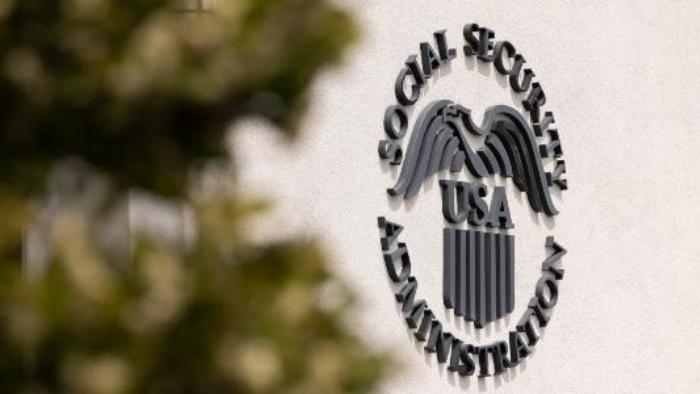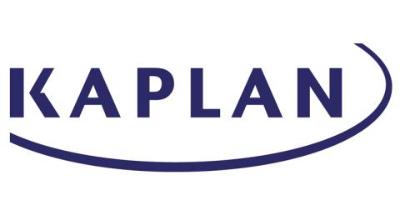Major Security Concerns of Accounting Firms In 2024
I. Introduction
A. Exploring the Present Scenario of Cybersecurity Threat in Accounting
In the accounting industry, where professionals have to deal with loads of confidential data daily, the threat of cyber theft is always present. At present, cyber threats are not just pranks; they are very effective, relentless attempts by cybercriminals. Cybersecurity in accounting goes beyond traditional measures and requires an inclusive approach to safeguard sensitive details.
B. What Role Does Cybersecurity Play For Accounting Firms?
Offshore staffing firms are more vulnerable to cybersecurity threats than companies from other domains. Cybercriminals often target them as they deal with sensitive and valuable financial information like bank account information, identification documents, and tax identification numbers. So, to avoid revenue loss and maintain a good reputation, accounting firms need to be aware of cyber security threats. As per reports of Accounting Today, accounting firms have witnessed a 300% increase in cyber attacks since the pandemic outbreak in an industry that is highly vulnerable to IT security threats.
C. Why is Cybersecurity a Major Concern for Accounting Firms?
Cybercriminals perform cyber-attacks in the accounting domain primarily for financial gain. Therefore, cyberattacks will occur wherever money is available. Accounting firms deal with a lot of cash, which attracts a substantial amount of money and makes them vulnerable to cyber-attacks. 85% of managed service providers(MSPs) reported ransomware attacks on small and medium-sized businesses.
As per a CNBC report, accounting firms are the most designated among small firms. Your firm’s name might also appear in the list of programmers. Therefore, accounting firm’s use of the latest technology has increased their utility and efficiency. The negative side is that it has created many threats and concerns. Accounting firms also need to deal with disruptive and cyber security threats.
II. Major Threats Faced By Cybersecurity Firms
While understanding cybersecurity concerns for accounting firms, you must know that accounting firms face unique challenges related to cybersecurity. The risk of unauthorized access, data breaches, and financial fraud are common and require drastic measures. Here are some examples of how cyber threats threaten offshore accounting firms-
A. Phishing Attacks and Fraudulent Emails
Accounting firms face many daily phishing attacks, often disguised as innocent emails or cleanup requests. The goal is to convince unsuspecting employees to reveal passwords or confidential data.
B. Ransomware Attacks
Ransomware attacks often put accounting firms in a risky position, as hackers demand a ransom for releasing crucial data. The ethical dilemma involves either paying ransom or risking the loss of confidential information.
C. Legal And Regulatory Obligations For Accounting Firms
In an age when compliance with private legislations like SOC, ISO, GDPR and CCPA has become mandatory, accounting firms must align with government regulations requiring strict adherence to data privacy practices. Non-compliance might lead to significant consequences, which makes legal and regulatory adherence essential.
III. Accounting firms must meet the following security standards:
A. Avoid the possibility of legal problems
Almost 66 percent of clients would like to snap ties with a company if valuable data gets compromised. 94% would consider taking legal action against organizations involved in data collection. Moreover, cyber security policies will protect your firm’s data. It will also help you gain customer trust and expand your operations.
B. Check Financial Loss
Small firms paid ransomware attackers between $10000 to $50000 in 43% of cases. To avoid a ransomware attack, you must hire someone certified in cyber security. Moreover, data loss is costly and reduces brand value. Whether or not the data can be recovered, the cost of cleaning this mess is incalculable.
C. Avoid Losing Client’s Financial Details
Offshore accounting firms are responsible for protecting their clients' financial data and need to ensure security. A human error may help cybercriminals access a client's financial information. Therefore, cyber security helps in preventing data breaches. Accountants, auditors, and tax professionals can enhance office productivity by acquiring online cybersecurity certifications.
D. Compliance with Industrial Regulations
Accounting industry is subject to many regulations, like the General Data Protection Regulation(GDPR) and the Sarbanes-Oxley Act(SOX). Such regulations aim to protect the integrity and confidentiality of financial data. Failure in complying with these regulations might lead to legal penalties and loss of credibility. By prioritizing cybersecurity, CPA firms can ensure compliance and avoid legal and financial issues.
E. Collaboration between IT Professionals and Offshore Accounting Team
In the battle against cyber threats, collaboration between offshore accounting professionals and IT experts is necessary. These two groups can track vulnerabilities, develop robust security protocols, and implement effective cybersecurity measures by working together. Investing in a dedicated IT team and creating a culture of cybersecurity awareness among all employees is necessary. Regular training and education on potential risks enable staff to protect sensitive financial data actively. Companies providing offshore staffing solutions like Entigrity are compliant with all GDPR requirements and have a highly transparent privacy policy. So, by partnering with them, you can ensure that your data never leaves the office premises.
IV. Staying Ahead: Predicting And Preparing For The Evolving Cybersecurity Landscape
A. AI & Cybersecurity
Accounting firms must be careful because AI's deep-learning capabilities will allow hackers to develop more complex attacks shortly. Cybersecurity attacks will become more personalized, with malicious hackers mining LinkedIn accounts to create personalized spear phishing emails.
B. Social Engineering Attacks
Accounting firms will need to be careful that in the near future, AI’s deep-learning capabilities have offered hackers the opportunity to develop more complex attacks. Cybersecurity attacks will become more personalized, with malicious hackers mining LinkedIn accounts to create personalized spear phishing emails.
C. Safeguard Your Cloud Software
Cloud-based accounting practice software can streamline an accounting firm's operations and boost productivity. Its popularity has made it a bigger target. Firms need to know that direct attacks against cloud services are rising, as per ZD Net, and it's essential that decision-makers take effective measures from places where their servers are located, and how they will manage their data in case of a breach.
Conclusion:
Cybersecurity measures can significantly enhance the operations and reputation of offshore accounting firms by safeguarding sensitive financial data, mitigating risks of data breaches, and fostering trust among clients. Robust cybersecurity protocols, including encryption, multi-factor authentication, and regular security audits, help protect confidential client information from unauthorized access or cyberattacks. By prioritizing cybersecurity, offshore accounting companies demonstrate their commitment to data protection and regulatory compliance, reassuring clients about the safety and integrity of their financial information.
Moreover, a strong cybersecurity posture can differentiate firms in a competitive market, attracting clients who prioritize security and reliability in their service providers. Ultimately, investing in cybersecurity not only protects the firm's assets but also strengthens its reputation and fosters long-term client relationships, driving growth and success in the offshore accounting industry.
FAQ
1. How can accounting firms protect against ransomware attacks?
● Ensure regular data backups.
● Implement robust cybersecurity software.
● Train employees on recognizing phishing attempts.
2. What steps can accounting firms take to secure client data in transit?
● Use encryption for all communications.
● Employ secure file transfer protocols.
● Implement multi-factor authentication for access to sensitive data.
3. How can accounting firms guard against insider threats?
● Implement strict access controls.
● Conduct regular security training for employees.
● Monitor and audit employee activities on sensitive systems.
Learn More
Share This Article
What's Trending?
Trending topics & tools for the CPA community
How Firms are Rethinking Reasonable Comp (Quick Video)
It’s a short video and makes the value of repeatable, data-backed approach clear (especially compared to spreadsheets, gut checks and one-off calculations).
Learn how 8am CPACharge delivers clarity and confidence for accounting firms.
8am™ CPACharge brings invoices, payments, and reconciliation together in a solution designed to make your day easier from start to finish.
Seniors on Social Security Could Face $460 Monthly Cut to Benefits
Jim Komoroski, RSSA®, is quoted in Newsweek, offering expert insight into the projected monthly cuts to Social Security benefits should Congress fail to act.
Resources
Valuable information provided by our sponsors.
Specialize in Social Security
Looking to enhance your retirement planning expertise? Your solution: pursue the Registered Social Security Analyst®...
CPAdirectory members have access to discounted auto and home insurance
At CPAdirectory, we think it's a good thing to provide our members with access to...
Free CPE Course: ChatGPT for Tax Pros — Limited Offer
CPAdirectory and CCH CPELink are giving you free access to the on-demand course: ChatGPT for...
PE Deals In Accounting: Valuations, Structure, Tradeoffs
In this webinar, you’ll hear from firm leaders and industry experts who will share real-world...
Stand Out as a Trusted Social Security Expert with the RSSA® Designation
Designed for CPAs, the Registered Social Security Analyst® (RSSA®) designation provides advanced training to help...
How Firms are Rethinking Reasonable Comp (Quick Video)
It’s a short video and makes the value of repeatable, data-backed approach clear (especially compared...













